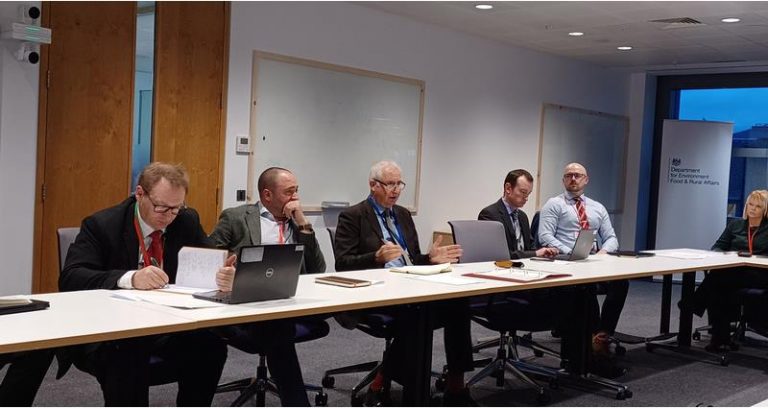Packaging tax could increase use of plastics and cost jobs, says British Glass
Cautious welcome from Doncaster Chamber for economic inactivity pilot
Rising tide of optimism ebbs away for business, says CBI
CEO Supper Clubs put hot topics in the table in Sheffield
Yorkshire embroiderers make ceremonial flags for Royal New Zealand Infantry Regiment
Farmers urge Minister to remove barriers to growth
Lincolnshire business shines on the international stage with net zero goals
Business startup support offers window of opportunity for stained glass conservers
A ‘start and grow’ scheme operated to help new businesses has opened a window of opportunity for a stained glass studio in York.
Woodside Stained Glass was created by Megan Barnett and Zoe Harrigan, who conserve and restore panels of glass that can date back several centuries, as well as making new stained glass commissions.
As newcomers to business they have been supported in its early business stages by a startup programme commissioned by City of York Council through Momentic’s Start and Grow York programme, commissioned through the UK Shared Prosperity Fund to deliver tailor-made support for start-ups and early-stage businesses in the city.
Hospitality venues urged to put effective tech on the menu in run-up to Christmas
As hospitality venues gear up to the festive season, almost half believe they will achieve their revenue targets this year, with a further 30% on track to exceed expectations.
That’s according to new data from payments technology company, Dojo, which reveals that more than half of managers forecast at least 10% revenue growth.
They see payments technology is key to continuing this growth trajectory, with one in five saying operational efficiency can be improved through better technology integration – the top opportunity in the next year.
Jon Knott, Head of Research & Market Insights at Dojo, said: “While there are positive signs from the hospitality industry that it’s seeing some shoots of recovery, many venues have been impacted by economic and technological turbulence. This year has seen a 139% growth in reservation numbers, underlining the pressure on hospitality businesses to deliver for their customers and the opportunity that awaits them should their payment systems maintain their reliability and performance.
“Bars and restaurants need to ensure that every customer touch point via technology, from the booking system to paying the bill, is seamless, reliable and pain-free. Investment in reliable technology and digital tools will be critical to the hospitality industry’s growth in 2025.”
One in five venues said payment failures or downtime were of particular concern, with payment system failures disrupting over half of businesses every week. In July, about 8.5 million systems crashed in one outage alone, described as the largest outage in history.












